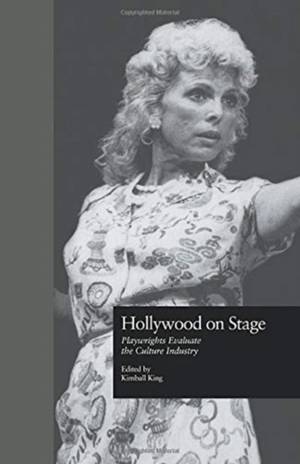
- Afhalen na 1 uur in een winkel met voorraad
- Gratis thuislevering in België vanaf € 30
- Ruim aanbod met 7 miljoen producten
- Afhalen na 1 uur in een winkel met voorraad
- Gratis thuislevering in België vanaf € 30
- Ruim aanbod met 7 miljoen producten
Zoeken
€ 41,45
+ 82 punten
Uitvoering
Omschrijving
Playwrights have been depicting Hollywood as a cultural desert and an industry of profit-driven philistines ever since the early days of the movies. This collection of original essays covers the period from the 1920s to the present but concentrates on such contempory playwrights as David Mamet, Sam Shepard, David Rabe, Arthur Kopit, and Adrienne Kennedy. A substantial proportion of the volume is devoted to a discussion of the way in which these authors deconstruct Hollywood myths to reveal painful social and psychological issues in American life, providing a deeper and darker picture than the simple satires of movie-making in the 1920s and 1930s or Odets's comparison of the commercially debased Hollywood with the higher, purer art of the theatre. To complete and further complicate the picture, the volume concludes with essays on the African American experience, gay writers, and feminist writing as seen through the lens of Marlane Myer's ETTA JENKS. It is obvious that the legitimate stage remains a watchdog and constant critic of what is possibly the world's most powerful cultural phenomenon This book will be eargerly read by all students of film, theatre, and 20th century literature.
Specificaties
Betrokkenen
- Auteur(s):
- Uitgeverij:
Inhoud
- Aantal bladzijden:
- 254
- Taal:
- Engels
- Reeks:
Eigenschappen
- Productcode (EAN):
- 9781138884076
- Verschijningsdatum:
- 23/06/2015
- Uitvoering:
- Paperback
- Formaat:
- Trade paperback (VS)
- Afmetingen:
- 140 mm x 216 mm
- Gewicht:
- 299 g

Alleen bij Standaard Boekhandel
+ 82 punten op je klantenkaart van Standaard Boekhandel
Beoordelingen
We publiceren alleen reviews die voldoen aan de voorwaarden voor reviews. Bekijk onze voorwaarden voor reviews.











